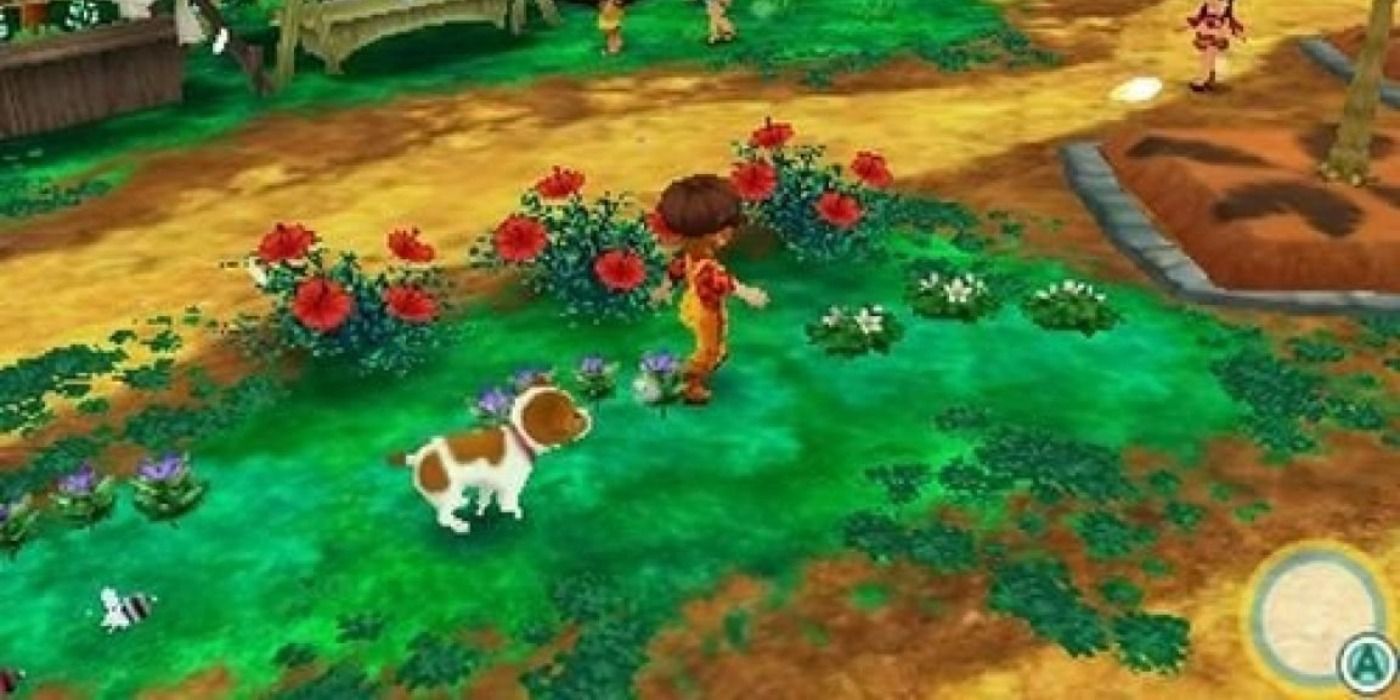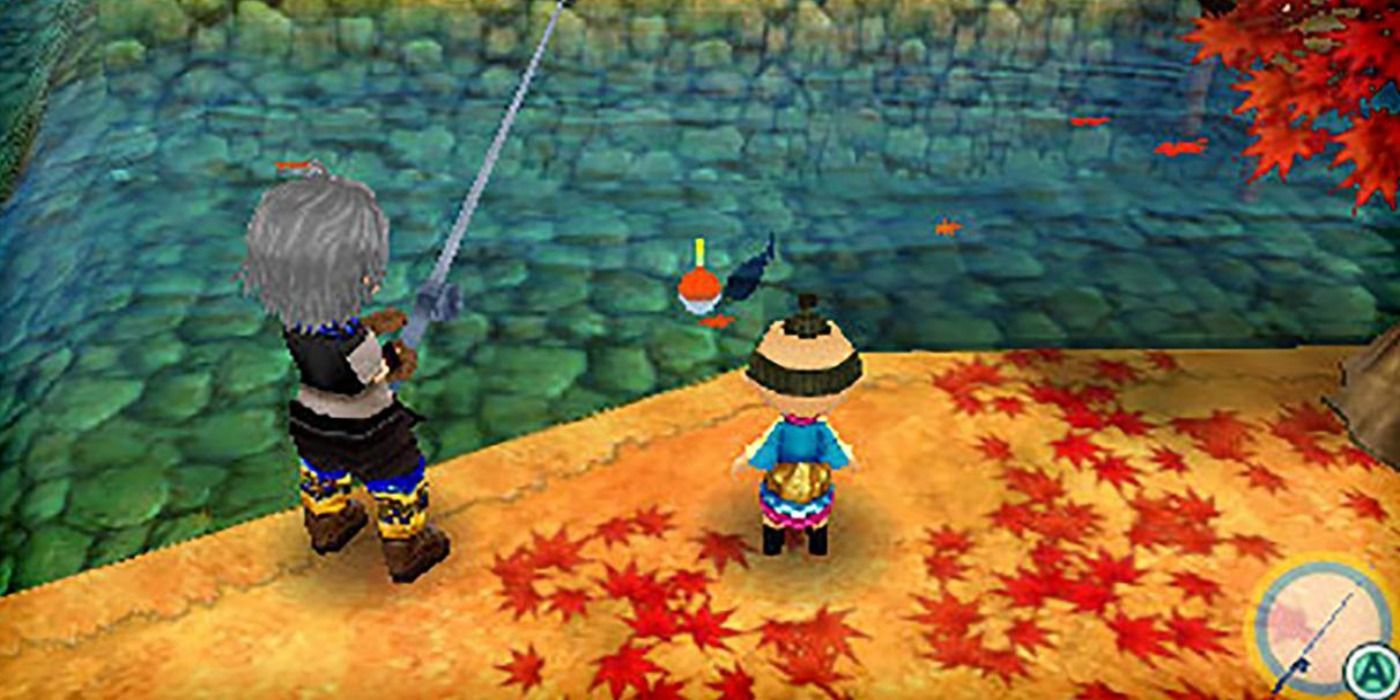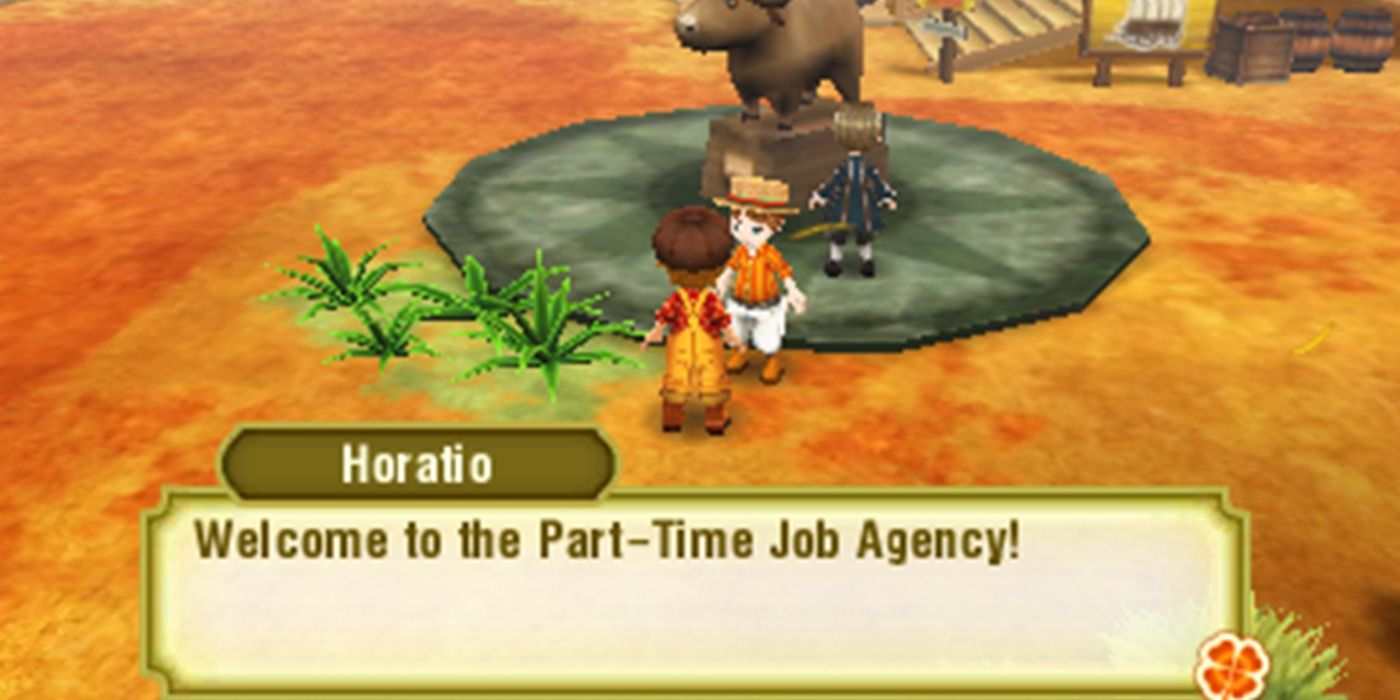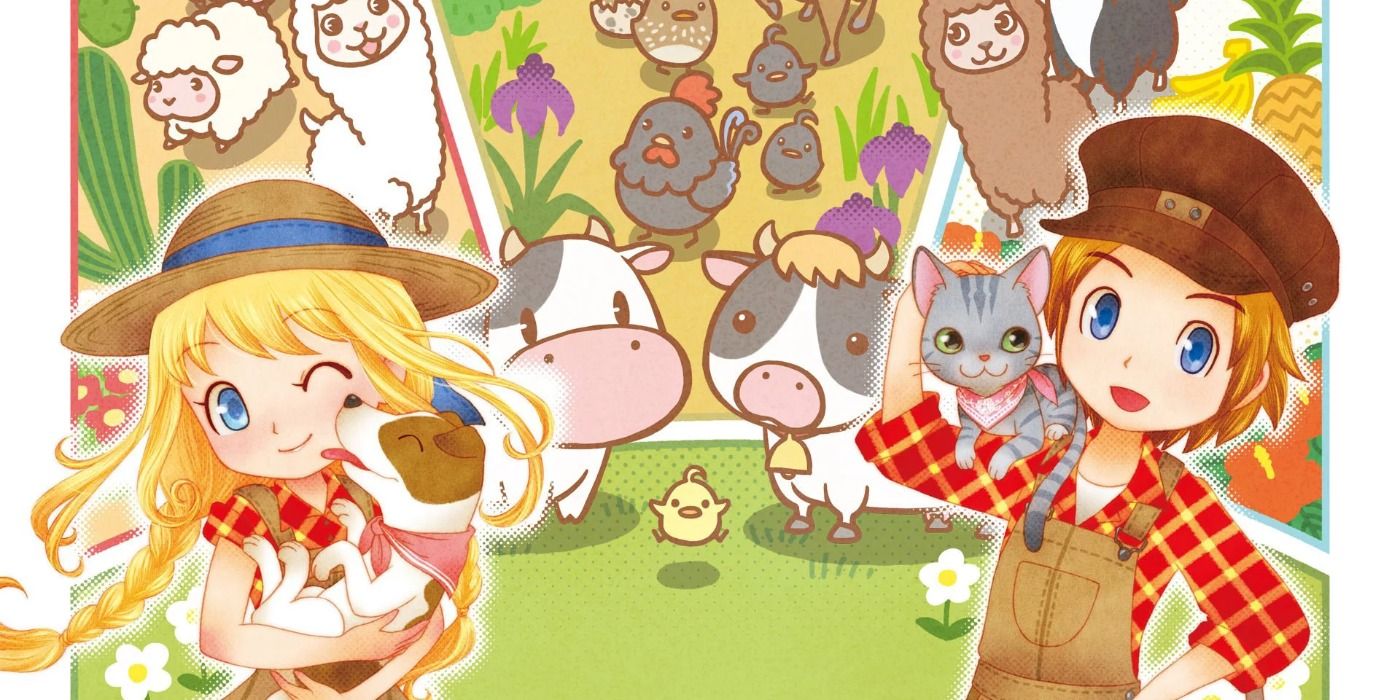How to Feed Chickens in Story of Seasons Trio of Towns
Story of Seasons Trio of Towns: How to Make Money Fast & Efficiently
Earning a hundred grand per day on Story of Seasons: Trio of Towns is surprisingly easier than it sounds.
With improved market dynamics and thrice the number of residents, earning enough on Story of Seasons: Trio of Towns may seem daunting at first — but far from impossible. The last standalone Story of Seasons (previously marketed as Harvest Moon by Marvelous Inc.) features an extra helping of everything farm sim, from augmented export/import opportunities, cultural diversity, and three customizable plots of land, to a whopping three-town economy, multiple livestock options, and enough upgrades to clock up to 200 hours of playtime a week. The game is resplendently and delightfully loaded and isn't so much overstuffed as it is crammed with consistently fresh content. To the uninitiated observer, however, three times the number of towns seems like a textbook case of having way too many options. Isn't doing business with one town complicated enough? Not really. Free-market capitalism thrives best with multilateral trade partners, and the more competition there is, the greater the chances of consistently achieving surplus. Story of Seasons: Trio of Towns simulates real-world economics to an almost hyperbolic degree, and like real-life corporate merchants, offers the ability to earn up to six figures in as little as two seasons (or two months) without any obligatory mods or gimmicks. This isn't Grand Theft Auto, and Trio of Towns still operates under real-world market conditions. And in any deregulated scenario, there's no such thing as "too much" invisible hand.
The key to earning up to 100,000 G on Story of Seasons: Trio of Towns is regularity: working the same routine every single day until you turn a sizeable profit. Five figures is the baseline aggregate per day — that would be paycheck plus shipping — but with enough upgrades, could easily climb to half a million in just the first year alone. Despite the increased demand for in-game freelancers and regular shipment — some of which are necessary to unlock better options and move the narrative forward — Trio of Towns manages to simplify the process enough to avoid having to micromanage to the last detail. This isn't Cities: Skylines or RollerCoaster Tycoon where devs reward the frugal and cautious. Instead, Trio of Towns rewards players for working hard and encourages concentrated spending, in that to earn more, one must spend more. And if consistency is key to wealth accumulation in Story of Seasons, moneymakers (in the form of crops, livestock, gems, seafood, produce, part-time jobs, and upgrades) are the padlocks to make it happen. Investing in every moneymaker conceivable allows players to take full advantage of the three unbelievably profitable settlements Trio of Towns offers, refashioning each into the remarkable business opportunity that it is instead of something lawless and unrestrainable. Two seasons is all anyone needs to start earning at least a hundred thousand bucks in 24 in-game hours, and here's how to do it.
Get The Most Done Before Lunch in Trio of Towns

A regular day in Story of Seasons always kicks off around daybreak. The player wakes at approximately 6 o'clock to get a head start on chores, which can be anything from feeding the cows to watering the crops. Completing tasks aimlessly, however, won't get players anywhere close to a hundred grand. Consistency demands structure and discipline and requires following the same rigid timetable every single day, however boring that may be. Call it dreary or monotonous, but monotonous is what brings in the goods. An astute businessman never enters into a contract without a plan in tow, and it's exactly the same here. It's absolutely vital to get most things done at least an hour before the lunch break, though, so better click your heels and hurry.
Always start the day tending to your farm. At 6 o'clock, the town residents are only just waking up. Stores aren't open until later in the morning. Best put the first few hours of the day to good use. Plant seeds, water preexisting crops, and harvest whatever yields are immediately available. Trio of Towns offers a wide variety of fertilizer, a rare feature players would be wise to take advantage of. Depending on the type of fertilizer used — and players can only use one per 3x3 a day — crops can lead to larger harvests, increase yield, enhance juiciness, improve sweetness and aroma, and refine color. Enhanced crops sell for much higher prices, and often perform well during contests. For optimal profit, concentrate on Propagating Fertilizer and Uniform Fertilizer, which can increase product quantity and yield larger-sized pickings. Trees, on the other hand, take time to bear fruit. Collect any that are available.
By now, it should be a little over 7 o'clock in the morning. Time to check on your livestock. Rejoice animal lovers — Trio of Towns offers the most variation in terms of cattle, with an expanded bovine, poultry, and mammal catalog, featuring not only cows and chickens, but also buffalos, llamas, quails, silkies, and different types of alpaca, rabbit, and sheep. Each animal yields different byproducts, all of which can be enhanced with treats to increase their monetary value. When caring for animals, always stick to the same routine: show affection, maintain their health, offer one treat a day, clean their homes, and collect their byproducts. To show affection, talk to larger cattle by pressing A. Pick up smaller animals and set them down. To keep them happy and healthy, brush their coats once a day. You'll know they are sufficiently maintained when a heart appears over their heads. Use the Pitchfork to get rid of Doo-doo — Trio of Towns's PG moniker for animal waste. And finally, use the Milker on bovines to collect their milk and apply the Clippers on furries to harvest their wool. Eggs, on the other hand, can simply be picked up with the A button by standing close. Once that's done, make sure the animals are sufficiently fed; if it's sunny, take them outside to graze and save on food; if it's raining, make sure they stay indoors otherwise they will contract illnesses and/or become unhappy. Don't forget to return them to their respective coops and barns shortly before sundown. Animals that aren't returned in time will sleep on the grass and become miserable when stirred. Enhancements on farm animals work almost the same as crop fertilizer. Depending on the treat used, players can raise certain livestock attributes for improved monetary gains and increased advantage during contests. There are five animal attributes players can boost with the help of treats: size, byproduct amount, byproduct quality, affection, and coat. Leave affection and coat for contests. Only size and byproduct matter during shipment.
By now, it should be close to 10 o'clock. Hurry to Lulukoko to check on your fish trap. This marvel of modern fishery catches seafood every 10 hours and can yield up to five or six marine delicacies twice a day — so make sure to check at the start of every workday and shortly before bedtime. If no fish trap is readily available, visit the Polepole general store in Lulukoko to stock up on traps. They break down after a few days, so always be ready with new ones. Set a basket down by the water and come back once the 10 hours are up. Unlike fishing poles which can only catch one fish — often low-quality too — at a time, fish traps can provide myriad top-grade seafood in a single yield. If you have extra time on your hands, by all means, fish normally, but it's not exactly the most efficient way to amass products for sale. While you're in Lulukoko, make sure to stop by the Part-Time Agency guy for extra moolah. For convenience, the game features one in every town. Leave chores for last; always prioritize home and flower deliveries, postal, and shipping. That way, players can deliver parcels in between errands, and earn extra money while they're at it. Most shipping requests involve eggs, flowers, milk, and crops, which are easy to accomplish with enough livestock and crops on your farm. Additionally, Ford's Medical Research is one request you wouldn't want to ignore; it pays at least a few thousand and can restore health depending on which ampoule or bottle you drink.
It should be a little over 11 o'clock now. Make your way through Lulukoko and into Tsuyukusa, picking up and dropping off deliveries while you're at it. Finally, head into Westown, the game's digital equivalent of a Midwestern mining camp. Get your deliveries settled, and equip your Hammer and start mining for gems. There are four repositories in Westown that yield ore; two are available at the start of the game, while the other two have to be unlocked after one or two hammer upgrades. (Lulukoko's Ludus handles tool upgrades, among others.) Each node can cough out up to five gems at a time, most of which — with the exception of iron, glass stone, bricks, pebbles, rocks, and scrap ore, which are all used for home renovation — cost over a few thousand each. The rarer the jewel, the higher the value. Do the math. That's gotta be close to ten thousands' worth of cash per overall yield.
Move Quickly Before Sundown in Trio of Towns

The day trickles down fairly quickly after lunch. Lulukoko's commercial district temporarily closes shop for its afternoon siesta. Other stores turn in shortly before dusk. It's a good time as any to finish off any remaining deliveries. Always prioritize Moriya's and Ethan's delivery requests over everybody else's; Tsuyukusa's Department Store and Westown's Postal Office close early, and require deliveries to be made by 5 o'clock. Don't dawdle. Some requests expire.
Forage for fruits, branches, flowers, and nuts in the hours after. Take on chore requests if you can spare the time. They pay decently and offer tips for exemplary work performance. Don't forget to ship almost every item you've received toward the end of the day. Any product that isn't in the shipping box after 24 hours will not be paid out the following morning. The recipient town can be tweaked the day before; however, shipping destination only matters when accomplishing town links. Aggregate earnings for the day consist of two things: paycheck and shipping. Paycheck comes from part-time work. Shipping derives from items sent. A full day done right always yields at least 60,000 G every morning.
It Always Pays To Think Many Steps Ahead in Trio of Towns

The best way to maximize profit in Trio of Towns is to work as efficiently and diligently as possible. Dive into tasks like you're going rapidly in a circle. Imagine an aircraft's concentric holding pattern — concentrate on everything that can be accomplished in any given area and always move methodically from one adjacent town to another. Move from Lulukoko to Tsuyukusa, then Westown, but never from Lulukoko and into Westown. Valuable time is often wasted during transit. Always take shortcuts, and never travel out of way.
Always be mindful of the clock when carrying out tasks. In-game time is often accelerated — hours become minutes and minutes become seconds — so spend no more than 30 seconds on any task (if you're able). And always keep a close eye on your health. Stock up on homecooked dishes and make sure to eat between tasks. Even with sufficient upgrades — say better tools, faster load times, and more hearts — working nonstop can drain your avatar's health pretty quickly, and it's always best to be prepared just in case. Carbs and proteins restore the most health — think eggs, rice, and pasta — and each recipe has varying status upgrades. Depending on what the player eats, meals can boost fishing ability, increase hearts, and improve overall stamina. You're going to need two to four meals while working the farm, another large meal around noon, and at least one more before sundown. If you decide to work extra hours fishing and running chores for other residents, you're going to need more homecooked dishes on the go. Town restaurants — which offer prepped meals — are also available if you run out of food in between trips. Pro-tip: to save on cash, hit up any one of the locals during meal times and share food to restore hearts without having to cough up a single cent.
Another pro-tip: buy a horse and invest in dogs and cats. These animals may not yield byproducts players can sell, but they are useful for getting around town and accomplishing certain tasks as quickly as possible. Galloping around the district on a horse is infinitely faster than running on foot. Pets are similarly handy on the farm. They can recover various items, from ores, plants, and construction material to certain types of fish, and herd livestock for you. These types of farm animals are gloriously low-maintenance and need only be fed and picked up/talked with to maintain their health and happiness. The game kicks pet ownership up a notch by offering different breeds of cat and dog, a wide variety of equine colors, and even a capybara. Productivity is more than just sticking to a schedule. It also means accepting help whenever available. There's no shame in admitting you can't handle every chore yourself.
Keeping up a fixed routine can take its toll on any casual gamer, but rest assured — Trio of Towns patently rewards hard workers. Racking up to a million G in less than a year is no small feat. It also encourages players to always think ahead. Worried you'll run out of fertilizer, treats, seeds, and fish traps? Stock up on goods regularly. Make it a habit. Don't ever let your supply dwindle out of schedule. Emergency trips to the store can shave valuable time off an already packed timetable, which is the last thing you need. Don't want to spend so often on the animal feed? Buy fodder seeds and raise them yourself. Install a silo. Once fully grown, fodder can be harvested with a Sickle once every day. Frustrated over how long it takes to till soil, water seeds, milk cows, and use axes and hammers? Not a fan of how much health they drain? Upgrade your tools whenever possible. The more efficient the tool, the faster the process, with better yields overall. Plus, your avatar will tire less quickly going from one errand to another. Are the towns lacking in options? Satisfy town links to unlock more items, clothes, home improvements, and animals for sale. Does it feel like you're taking too long working each chore? Are tasks not moving smoothly enough? Consider prepping the night before. Make sure your watering can is refilled before turning in for the day. Don't forget to replace broken fish traps. Experiment. Consider every possibility. Trio of Towns is phenomenally comprehensive. If players can imagine it, 9 times out of 10 it's probably in the game.
Story of Seasons: Trio of Towns is available on the Nintendo 3DS.
Source: https://screenrant.com/story-seasons-trio-towns-money-fast-efficiently/

0 Response to "How to Feed Chickens in Story of Seasons Trio of Towns"
Post a Comment